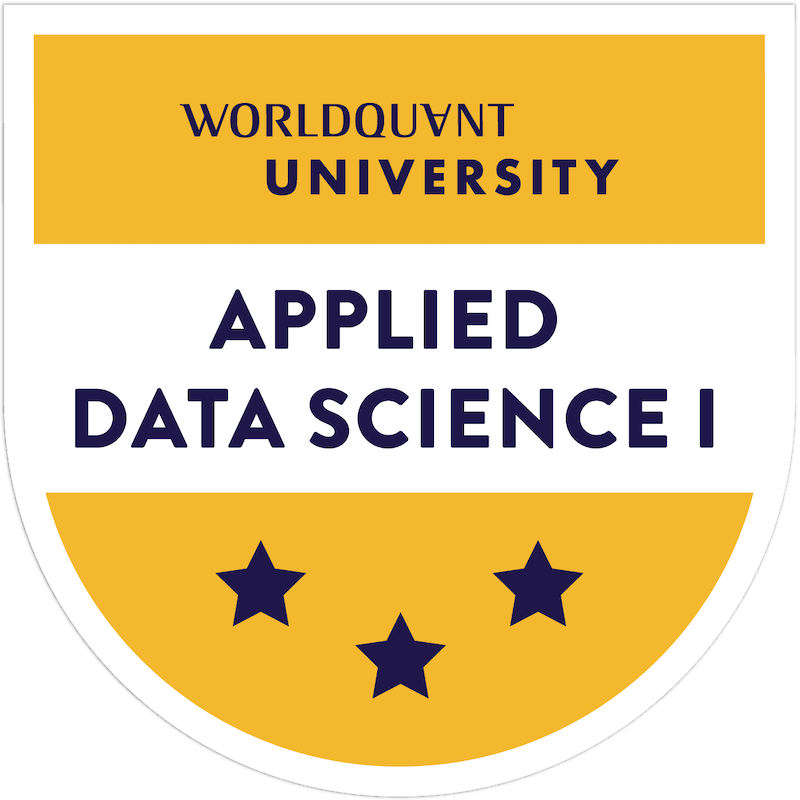
This badge was issued to Abhishek Singh on 22 Jun 2021.
Applied Data Science I: Scientific Computing & Python (with honors)
Issued by
WorldQuant University
Earners of this badge have completed a comprehensive introduction to scientific computing, Python, and related tools used by data scientists. They can use Python to read, clean, process, and analyze real-world data by following good programming practices such as using functions, choosing the appropriate data structures, and writing readable, maintainable code. To determine the statistical significance of the results of their analysis, they can apply statistical analysis and hypothesis testing.
- Type Learning
- Level Foundational
- Time Weeks
- Cost Free
Skills
Earning Criteria
-
Earners of this badge have successfully completed 4 mini projects and maintained a cumulative average score of 90% or above. The descriptions and skills needed to complete these projects are listed below.
-
In mini project 1, earners of this badge used Python to compute Mersenne numbers, using the Lucas-Lehmer test to identify Mersenne numbers that are prime. They had to use Python data structures and core programming principles such as for loops to implement their solution. Further, they had to implement the Sieve of Eratosthenes as a faster solution for checking if numbers are prime, learning about the importance of algorithm time complexity.
-
In mini project 2, earners of this badge used Object Oriented Programming to create a class that represents a geometric point. They define methods that describe common operations with points such as adding two points together and finding the distance between two points. Finally, they wrote a K-means clustering algorithm that uses the previous defined point class.
-
In mini project 3, earners of this badge used basic Python data structures, functions, and control program flow to answer posed questions over medical data from the British NHS on prescription drugs. They had to use fundamental data wrangling techniques such as joining data sets together, splitting data into groups, and aggregating data into summary statistics.
-
In mini project 4, earners of this badge used the Python package pandas to perform data analysis on a prescription drug data set from the British NHS. They answered questions such as identifying what medical practices prescribe opioids at an usually high rate and what practices are prescribing substantially more rare drugs compared to the rest of the medical practices. They used statistical concepts like z-score to help identify the aforementioned practices.
